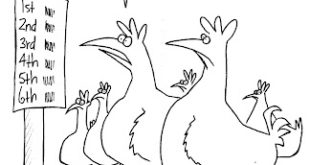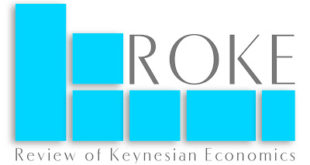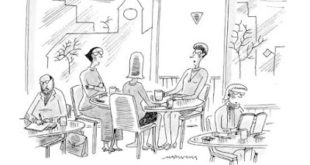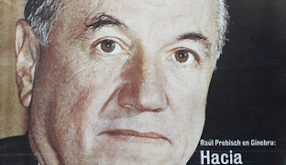I am pleased to let you know that the 2023 Impact Factor for ROKE has gone up to 1.6 from 1.219. This puts us as one of the top heterodox journals. There are a few above, in my understanding, like the Cambridge Journal (2), and some incredibly good ones that were not ranked until recently, like the Review of Political Economy (now 1.5). One, of course, should take those ranks with some degree of caution. And old post on that here.
Read More »New directions in the Sraffian approach
Call for Papers (ROPE)65 years after Production of Commodities by Means of Commodities: new directions in the Sraffian approachGuest Editor: Santiago José GahnInternal Editor: Sylvio KappesThe year 2025 marks the 65th anniversary of the publication of the book Production of Commodities by Means of Commodities by Piero Sraffa (1960). Not all economists are capable of transforming their name into a legacy, into a school. Piero Sraffa belongs to this select group. Exiled from fascism, he built...
Read More »Unmasking Inflation: Why the Conventional Wisdom is Failing Us
[embedded content]Interview I gave for INET in January. From their website:Matías Vernengo navigates the complex topic of inflation, discussing its implications on workers, and the economic policies that can potentially mitigate these effects. He explains the inflation of the 1970s and compares it to the more recent inflationary scenario provoked by global events. Vernengo evaluates the mainstream explanations - demand-pull and cost-push theories - and presents an alternative, heterodox...
Read More »Special Issue of the Review of Keynesian Economics
New issue of ROKE on: Center-periphery analysis reconsidered, Essays in memory of Luigi Pasinetti. Possible topics of contribution to our special issue could address:The relevance of the center-periphery analysis and/or its limitations;Income and/or wealth distribution: the distributive and redistributive effects (in central and peripheral countries) of the neoliberal globalization;Debt tolerance/financial crises: the destabilizing role of central monetary policies on the peripheral...
Read More »A New Turn to the Left in Latin America?
Special issue of Cuadernos de Economía, to be co-edited by Esteban Pérez and myself. Deadline is December 15.
Read More »How tight is the labor market?
Inflation is coming down, as the last BLS report shows. I'm not going to get into that into this (very short) post. The disinflation has taken place while the official unemployment remains very low. However, we all know that unemployment measures very poorly the situation in the labor market. My alternative measure, which I make students calculate in macro classes, is what would be the unemployment rate be if the participation rate, which has been declining since the early 2000s (when China...
Read More »More on oligopolistic inflation (Greedflation)
Marc Lavoie has written this post on the current inflation debates, which received some attention. We had a conversation (I don't say debate because we mostly agreed, and the video is here, last September). I also recommend Julia Braga and Franklin Serrano's paper on Marc's chapter on inflation, which is relevant for the current debates. The debate rages, within heterodoxy, as if a lot of the ideas are new, but quite frankly they are a recap of discussions of the past, particularly for those...
Read More »Servaas Storm on Lance Taylor
Lance Taylor in Beijing (with me, center), 2001Full paper for download here. From Duncan Foley's recollection cited in the paper.Lance had what one might call a casual approach to every-day dress, though he appeared for public talks well turned out even with rather jaunty accessories. It was not unusual, however,for him to appear in his office in the working clothes of a Maine farmer. On some of these occasions, particularly when travel delays or cancellations disrupted work plans, I would...
Read More »Soft landing or recession
This is a very short note, prompted by the increasing fears of the default and its consequences, which I think it's greatly exaggerated, and the relatively optimistic views about the effects of monetary tightening. Sure enough, as I noted recently, an adjustment, and lower spending, associated either with an agreement with Congress Republicans (very unlikely) or as contingency plans (14th Amendment of other solutions) are implemented, could certainly through the economy into a recession. But...
Read More »How Industrialization Become the Core of Raúl Prebisch’s Thought
New paper by Adriana Calcagno. From the abstract:This paper focuses on the intellectual path through which Raúl Prebisch placed industrialization at the center of his economic thought and policy recommendations. It shows how the changing international context of the 1930s and 1940s made him depart from laissez-faire and adopt counter-cyclical policies, gradually abandoning the agrarian export-led growth model and finally embracing industrialization as the new growth strategy for...
Read More » Naked Keynesianism
Naked Keynesianism





-310x165.png)

-310x165.png)
